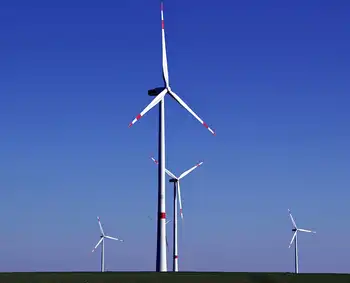Controversial incinerator deal signed
CLARINGTON, ONTARIO - The chair of Durham Region has signed a controversial contract to build the GTAÂ’s first garbage incinerator in 20 years.
Roger Anderson told regional council of his move with a mass email, igniting furious and saddened reactions from opponents of the $260 million project with Covanta Energy Corp.
Anderson has signing authority on the contract without having to go back to council for approval. Just recently, the provincial Environment Ministry approved the Clarington incineratorÂ’s environmental assessment.
Anderson could not be reached for comment.
Opponents call the project dangerous for the environment and overpriced, arguing it will drive down property values and increase truck traffic.
“I’m absolutely disgusted,” said outgoing Oshawa councillor Brian Nicholson. “I think it’s the worst mistake Durham Region has made since the region was formed in 1974.”
“I was in tears today,” said Bill Steele, who ran unsuccessfully for council in Oshawa in the recent election. “I have a granddaughter who’s 8. I was thinking of her future, the quality of the air. We don’t have the greatest air already.”
In his email, Anderson said the incinerator project has been studied extensively for years.
“I feel it is appropriate that the contract be signed especially after this council spent every day of the last four years on this file after the peer reviews by the region and by Clarington and after 18 months of provincial review which confirmed what regional council supported in June of 2009,” Anderson wrote.
Nicholson said the incoming council should have been allowed to study details of the deal before Anderson signed it.
“That’s an insult to democracy,” he said.
In his email, Anderson said he signed the agreement “after much deliberation with staff, with our partners in York Region, and with our legal advisers in the region and in Toronto.”
“As regional chair I take my position very seriously and I would hope you would all know that if this agreement did not meet the directions given to me and staff by regional council I would not have signed the agreement,” Anderson wrote.
The incoming council meets December 8, and critics of the controversial energy-from-waste plant argued Anderson should have held off on signing the deal until it could be studied and debated by the new council.
After itÂ’s sworn in, councilÂ’s first order of business is expected to be a vote on whether Anderson remains as regional chair.
Steele said he expects the meeting to be packed and furious.
He said the previous council only saw broad strokes of the contract before it was signed.
“That should have went back to council to be discussed,” Steele said.
York Region is a 20 per cent partner in the incinerator, which will handle 140,000 tonnes of trash a year, creating power in the process.
ItÂ’s to be built in Clarington using federal gas-tax funding.
Steele said the only alternative now to stop the incinerator is for council to pay whatever penalties might be imposed and look at other technologies for managing trash.
“At any cost, I think we should stop that incinerator,” Steele said. “Whatever the cost is, pay and get out of it.”
In an online poll this fall, about half the 28 regional councillors said they wanted to stop the project.
Related News

After rising for 100 years, electricity demand is flat. Utilities are freaking out.
WASHINGTON - The US electricity sector is in a period of unprecedented change and turmoil. Renewable energy prices are falling like crazy. Natural gas production continues its extraordinary surge. Coal, the golden child of the current administration, is headed down the tubes.
In all that bedlam, it’s easy to lose sight of an equally important (if less sexy) trend: Demand for electricity is stagnant.
Thanks to a combination of greater energy efficiency, outsourcing of heavy industry, and customers generating their own power on site, demand for utility power has been flat for 10 years, and most forecasts expect it to stay that…




